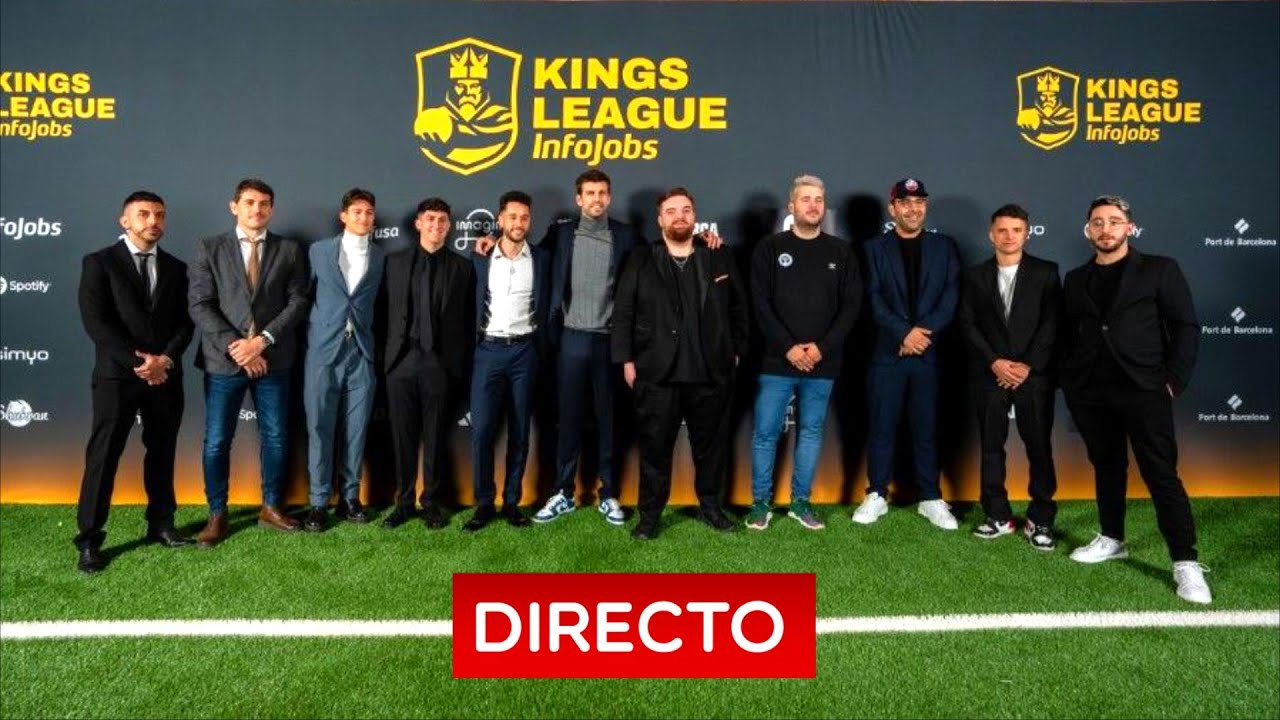Gerard Pique`s unique vision extends beyond the conventional soccer world. Driven by a blend of his passion for the sport and a sharp business acumen, he is always focused on future possibilities rather than dwelling on past accomplishments. This perspective underpins the Kings League, the seven-a-side format he established in 2022, known for its unconventional rules. Since October 2024, Djamel Agaoua has taken on the role of CEO, tasked with guiding the league towards its next goals, starting with expanding into the United States, as both Pique and Agaoua confirmed.
Pique and Agaoua clarify that the Kings League isn`t intended to compete directly with the established soccer model. Instead, their aim is to propose and build a complementary, parallel ecosystem. Agaoua articulated this approach, stating, “We don`t compete [with] soccer, but we want to create a product that is complementary. There will always be a traditional audience that won`t understand what we want to achieve, we aim to have a different audience.”
The Kings League seeks to attract a wide audience, particularly younger generations, alongside investors and potential team owners globally. Their internal data suggests that a substantial 40% of potential soccer fans are no longer watching traditional matches, and an impressive 85% of the Kings League`s current audience is under 35, largely drawn from the eSports and streaming communities. This insight shaped their strategy of building clubs owned by popular streamers, who naturally bring their existing audience and broadcast capabilities. A notable aspect of their model is a relaxed attitude towards piracy, a significant challenge for traditional media.
Regarding content distribution, they commented, “For us, it doesn’t matter if there are different platforms of streamers showing the same content, it’s actually better for us.” The rationale is that if a team is owned by a streamer or a well-known former player, viewers can easily switch between different streams to get varied commentary or perspectives on the same game, thus consuming the product through diverse experiences.
While the Kings League has partnered with traditional broadcasters worldwide, including CBS Sports, the primary driver for these deals isn`t revenue generation. “We want to reach the mainstream media,” Agaoua explained, “but our deals are not exclusive, they are a way to go in the market.” They prioritize media partners who are willing to invest time in explaining the league`s unique rules and system over those offering the highest financial terms.
Audience involvement is a cornerstone of the Kings League. Pique gave the example of letting fans vote on the pitch color. “The 70% voted for a black grass,” he said, “and now when you see a black pitch you immediately think about the Kings League.”
The league`s business model fosters competitiveness for team ownership without increasing the overall number of clubs. This allows creators to sell teams, encouraging investment. The overarching goal is to cultivate a profitable environment for all teams, offering a contrast to many traditional soccer clubs that face financial difficulties. While the league originated within the streaming sphere, the ambition is clearly to transition into a mainstream phenomenon.
Currently operating across Spain, Italy, France, Germany, Central America, and Brazil, the Kings League is set to launch in the MENA (Middle East and North Africa) region and the United States before the 2026 World Cup. Pique noted that the World Cup of Clubs helped identify markets ripe for their own league. Brazil proved an excellent fit due to its strong culture of street soccer and streaming, resulting in millions of users connecting per matchday and a final held at a major stadium like Palmeiras. France showcases a lineup featuring prominent players like Mike Maignan, Aurelien Tchouameni, and Eduardo Camavinga. In Spain, young Barcelona star Lamine Yamal was a fan before joining the first team and now owns a Kings League team, illustrating the league`s deep connection with its audience.
Business partnerships are also critical, as highlighted by Agaoua. This is especially true given that younger demographics consume content primarily on mobile devices rather than traditional television. Sponsors are particularly interested in the Kings League because it offers a unique opportunity to target this specific, youthful audience. The league leaders believe their primary competitors are not other sports like basketball, but rather content platforms such as Instagram, TikTok, and Netflix.

